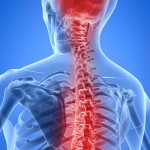 According to several studies, manipulation of acupuncture needles has been shown to have a positive effect on human physiology. Evidence indicates that acupuncture has a regulating effect on the vascular, neurological, and endocrine systems.
According to several studies, manipulation of acupuncture needles has been shown to have a positive effect on human physiology. Evidence indicates that acupuncture has a regulating effect on the vascular, neurological, and endocrine systems.
Insertion of an acupuncture needle into the human body elicits a cascade of various hormones and chemical reactions. The first reaction is local vasodilatation, which causes the stimulation of pain sensory neurons, which communicate with the spinal afferent nerves. The body then brings immune cells to the local needling site. These initial hormone and nerve responses further increase blood circulation and tissue repair. The whole process eventually produces an increase in blood circulation, pain relief, relaxation, and a return to homeostasis.
Because inserting a needle anywhere in the body will provoke an acute inflammatory response, the questions one may ask are: Is it necessary to needle a particular acupuncture point to achieve the desired effect? And what is an acupuncture point? It’s hard to definitively say, but we do know that in many cases, acupuncture points are associated with areas that are more sensitive to touch, heat, and cold. These areas (or nodes) are densely supplied with blood vessels and nerves. In addition, nodes have greater electrical conductance and lower electrical impedance. So when needling specific acupuncture sites or nodes, a more profound and longer lasting physiological response is produced.
Over three hundred acupuncture points are located on the human body. When treating a patient using acupuncture, points are carefully chosen based on the patient’s signs and symptoms. Not all acupuncture points have the same functions, due to their different afferent connections to the Central Nervous System (CNS). In addition, several studies have been done on a handful of acupuncture points by injecting them with dye and tracing the material along the nerves supplying the spinal cord. Those studies illustrate the nerve pathway of acupuncture points and their effect on specific tissues, including the internal organs.
In conclusion, studies have demonstrated that acupuncture affects the vascular, neurological, and endocrine systems. However, the precise mechanisms of acupuncture are not completely understood by Western science. Further studies will help medical researchers better understand these mechanisms. One interesting set of studies worth exploring would be using MRI imaging to map out brain regions that are activated by the stimulation of acupuncture points.
